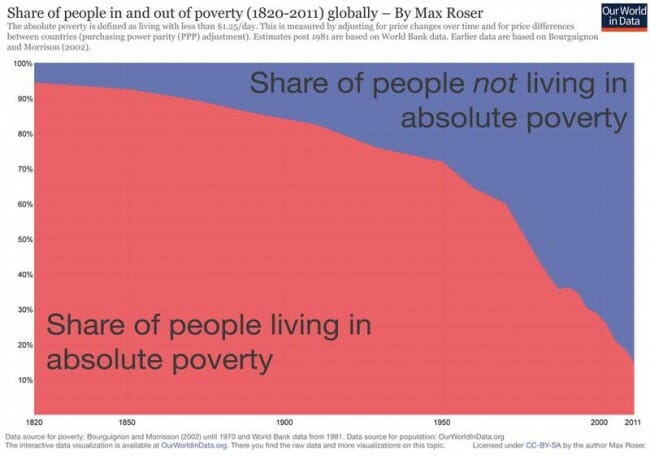Do We Care About Income Inequality, or Absolute Well-Being?
I am going to reprise parts of an article I wrote in Forbes several years ago, because I think the conclusions are particularly relevant given the Democrats' discussion of income inequality and the Scandinavian economic model.
When folks like Bernie Sanders say that we have more income inequality than Sweden or Denmark, this is certainly true. By just about any test, such as Gini ratios, we have a much wider range of incomes.
However, we Sanders implies that this greater income equality means the poor are better off in these countries, he is very probably wrong. Because the data tends to show that while the middle class in the US is richer than the middle class in Denmark, and the rich in the US are richer than the rich in Denmark, the poor in the US are not poorer than those in Denmark.
And isn't this what we really care about? The absolute well-being of the poor?
I am not a trained economist or economic researcher, but I have looked for a while for a data source to get at this. I can find Gini ratios all over the place, but how do I compare the absolute well-being of poor in one country to poor in another?
The first clue that I was maybe on the right track was this chart that actually came from a left-wing group trying to promote the idea of reducing income inequality. The chart is hard to read (the study is no longer online and all I have is a bad screenshot), but it seemed to show that the poor in the US were no worse off than the poor in Denmark and Sweeden
So the data had to be there somewhere. Finally I found a set of data that seemed to does the trick. I used data from the LIS Cross-National Data Center. I cannot vouch for their data quality, but it is the same data set used by several folks on the Left (John Cassidy and Kevin Drum) to highlight inequality issues, so I used the same data source. I then compared the US to several other countries, looking at the absolute well-being of folks at different income percentile levels. I have used both exchange rates and purchasing price parity (PPP) for the comparison but my feeling is that PPP is a better approach when we are comparing consumer well-being.
You can click through the Forbes article to see all the comparisons, but I will focus here on Sweden and Denmark since they are very much in the policy-making discussion on income inequality. As usual, you can click to enlarge:
What does this mean? If the data is correct, it means that all the way down to at least the 10th percentile poorest people, the poor in the US are as well or better off than the poor in Denmark and Sweden. And everyone else, including those at the 20th and 25th percentile we would still likely call "poor", are way better off in the US.
All this talk about reducing income inequality by emulating Denmark is thus not about making the poor better off, but just about cutting the rich and middle class down to size.








